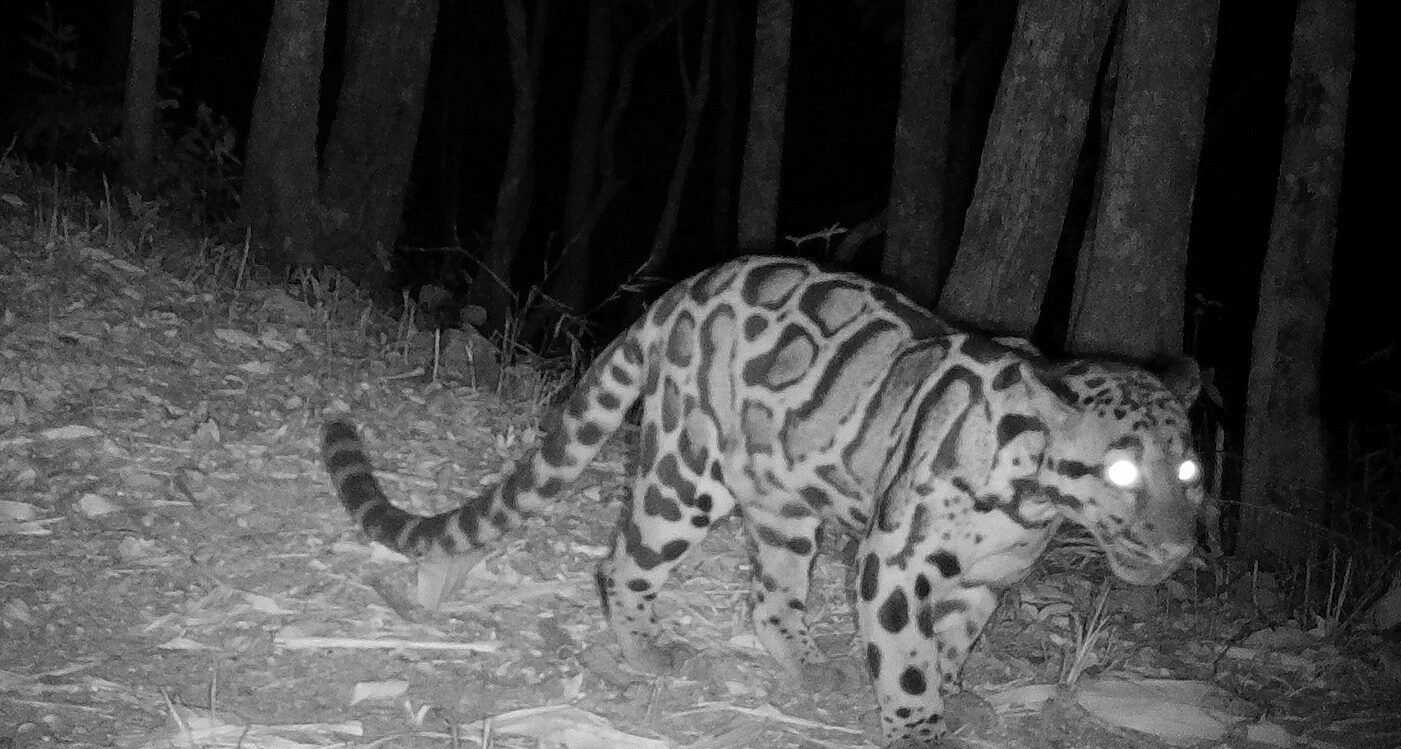Rare clouded leopard struts its stuff in Thailand’s new wildlife safe haven

In the mountains of Kanchanaburi in western Thailand, hidden cameras are capturing more and more clouded leopards, Indo-Chinese tigers, gaurs, and other wildlife.
Recognising the importance of the conservation of Thailand’s wildlife, Thailand’s Treasury Department is preparing to declare an area of land covering 219,000 rai of land a non-hunting area.
The huge conservation area – covering Si Sawat and Bo Phloi district – is comprised of steep mountains and dense jungle home to millions of species of flora and fauna.
At present, the land is owned and controlled by the Treasury Department and is utilised by the Royal Thai Army which uses the forests for training and other missions.
The non-hunting area will serve as a wildlife corridor connecting Srinakarin Dam National Park, Chaloem Rattanakosin National Park, and Salakpra Wildlife Sanctuary, promoting all species to flourish.
Declaring the area as Si Sawat Non-Hunting Area will reduce the burden on the military to take care of the land. The army patrols the area but it is not their direct duty to protect the wildlife.
Once declared a non-hunting area, it will be taken care of by the Department of National Parks, Wildlife and Plant Conservation, which has already begun to deploy forest rangers whose role is to help maintain and protect the forests, wildlife and natural resources.
Kanchanaburi’s conservation areas all face the problems of illegal poaching, logging and encroachment. Moreover, conflicts between communities and wild elephants are getting more frequent.
The Royal Thai Army and Treasury Department don’t have official policies for managing these issues. Both agree that the first step to tackling these problems is to declare the area a non-hunting zone.
In Thailand, some hunting in specific areas is permitted. However, protected wildlife must not be hunted in any instance.
Giving the area non-hunting status increases the penalties for people found illegally hunting protected wildlife.
Forest rangers will install more camera traps to help track and collect data about Thailand’s most lucrative species.
Head of the Area’s Control Unit Prawut Prempreed said…
“After the army and Treasury Department agreed to give importance to this area for conservation – and allowed the Department of National Parks, Wildlife and Plant Conservation to take care of it – the number of wild animals being captured by hidden cameras is increasing, including Indo-Chinese tigers, clouded leopards and gaurs.”

Latest Thailand News
Follow The Thaiger on Google News:


























